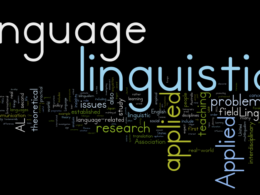English Grammar
Introduction
English grammar is the backbone of effective communication in the English language. Understanding and using grammar correctly is essential for conveying thoughts, ideas, and emotions with clarity and precision. Whether you are a native English speaker or someone learning English as a second language, a strong grasp of grammar is crucial for fluency and expressing yourself effectively.
Table of Contents
Importance of English Grammar
Clear Communication
Grammar provides the necessary structure to make sentences understandable. Correct word order, proper use of punctuation, and accurate verb tenses ensure that your message is conveyed as intended. A lack of attention to grammar can lead to confusion and misinterpretation, hindering effective communication.
Writing Skills
Good writing relies heavily on sound grammar principles. Proper grammar usage enhances the flow of your writing and makes it more engaging to readers. Whether you are writing a formal essay, a business report, or a casual blog post, adhering to grammar rules elevates the quality of your work.
Professionalism
In professional settings, using proper grammar is a sign of competence and attention to detail. Employers often consider good grammar a valuable skill when evaluating job applicants. It reflects your ability to communicate professionally and contributes to a positive impression in the workplace.
Basic Elements of English Grammar
To understand English grammar fully, you need to grasp its basic elements.
Nouns and Pronouns
Nouns are words that represent people, places, things, or ideas. Pronouns, on the other hand, replace nouns to avoid repetition. Understanding how to use nouns and pronouns correctly is fundamental to constructing coherent sentences.
Verbs and Tenses
Verbs indicate actions or states of being. They change forms to show different tenses, such as past, present, and future. Mastering verbs and tenses is essential for expressing time-related information accurately.
Adjectives and Adverbs
Adjectives modify nouns, while adverbs modify verbs, adjectives, or other adverbs. These descriptive words add depth and specificity to your writing, making it more vivid and engaging.
Prepositions and Conjunctions
Prepositions show relationships between words in a sentence, such as time, place, or direction. Conjunctions connect words, phrases, or clauses. Understanding these parts of speech is crucial for constructing meaningful sentences.
Sentence Structure
Constructing clear and well-organized sentences is key to effective communication.
Subject and Predicate
Every sentence has a subject (the doer of the action) and a predicate (the action or what the subject does). Identifying the subject and predicate is essential for sentence construction.
Types of Sentences
English sentences can be declarative, interrogative, imperative, or exclamatory. Each type serves a specific purpose in communication.
Sentence Fragments and Run-Ons
Avoiding sentence fragments and run-on sentences ensures that your writing is clear and easy to read. Sentence fragments lack a subject or predicate, while run-ons combine multiple ideas without appropriate punctuation.
Punctuation Rules
Punctuation marks help structure sentences and convey meaning.
Periods and Commas
Periods indicate the end of a sentence, while commas separate elements within a sentence. Understanding when and how to use periods and commas is crucial for maintaining clarity in your writing.
Apostrophes and Quotation Marks
Apostrophes show possession or indicate contractions, while quotation marks are used for dialogue or to enclose direct quotations. Using these punctuation marks correctly avoids confusion in your writing.
Colons and Semicolons
Colons introduce lists or explanations, while semicolons join related but independent clauses. Utilizing colons and semicolons appropriately enhances the structure of your writing.
Common Grammar Mistakes
Certain grammar mistakes are common and can easily be corrected with awareness and practice.
Their vs. They’re vs. There
“Their,” “they’re,” and “there” are often confused. “they’re” is a contraction for “they are.” Their” shows possession,” and “there” refers to a location or point in a sentence.
Your vs. You’re
“Your” indicates possession, while “you’re” is a contraction for “you are.” Understanding the difference prevents grammatical errors.
Its vs. It’s
“Its” is possessive, while “it’s” is a contraction for “it is” or “it has.” Correctly using these forms ensures clear expression.
Effect vs. Affect
“Effect” is a noun that signifies the result of something, while “affect” is a verb that means to influence. Differentiating between the two words improves sentence accuracy.
Improving Grammar Skills
Enhancing grammar proficiency requires consistent practice and learning.
Reading
Reading a variety of materials exposes you to different sentence structures, styles, and grammar rules. It expands your vocabulary and improves overall writing skills.
Writing Exercises
Regularly engaging in writing exercises helps reinforce grammar concepts and provides opportunities for improvement.
Grammar Apps and Tools
Numerous grammar-checking apps and tools are available online. They can be valuable resources for identifying and correcting grammar errors in your writing.
Advanced Grammar Concepts
Once you are comfortable with the basics, you can explore more advanced grammar concepts.
Passive Voice vs. Active Voice
Understanding the difference between passive and active voice allows you to choose the most suitable voice for your writing style and purpose.
Conditional Sentences
Conditional sentences express possibilities and their potential consequences. Learning to construct these sentences adds depth to your writing.
Relative Clauses
Relative clauses provide additional information about a noun in a sentence. Mastering them allows you to create more complex and detailed sentences.
The Evolution of English Grammar
English grammar has evolved over time, influenced by historical and cultural changes.
Old English to Modern English
The transition from Old English to Modern English brought significant shifts in grammar rules and vocabulary.
Influences and Changes
Other languages and cultural interactions have influenced English grammar, leading to the incorporation of new words and expressions.
Grammar in Business Communication
In the professional world, proper grammar is essential for effective business communication.
Professional Emails
Writing grammatically correct emails conveys professionalism and builds trust with clients and colleagues.
Reports and Proposals
Accurate grammar is crucial in reports and proposals, as it ensures clarity and precision in conveying information.
Presentations
Using proper grammar in presentations enhances the credibility and impact of your message.
The Role of Grammar in Creative Writing
Grammar plays a vital role in creative writing, adding depth and nuance to literary works.
Poetry and Prose
Poetry and prose rely on different grammatical techniques to evoke emotions and create vivid imagery.
Writing Styles and Voice
Mastering grammar allows writers to experiment with various styles and develop a unique voice.
Addressing Regional Grammar Differences
English is a global language with regional variations that affect grammar.
British English vs. American English
Differences in grammar and vocabulary exist between British English and American English.
Other English Variations
English is spoken as a second language in many countries, leading to additional grammatical variations.
Grammar in Digital Communication
With the rise of digital platforms, grammar has become essential in online communication.
Social Media Posts
Using correct grammar in social media posts improves the clarity of your messages.
Online Articles and Blogs
Well-structured grammar in online articles and blogs enhances readability and user experience.
Grammar and Language Learning
English grammar can be challenging for non-native speakers, but effective teaching strategies can make the process smoother.
ESL Students’ Challenges
Understanding common difficulties faced by ESL students helps tailor teaching approaches to address their needs.
Teaching Grammar Effectively
Implementing engaging and interactive grammar lessons promotes effective learning outcomes.
Conclusion
Mastering English grammar is a journey that opens doors to effective communication, both personally and professionally. Clear and concise writing, combined with a strong grasp of grammar, allows individuals to convey their thoughts with confidence and connect with their audience. Embracing continuous learning and practice will lead to improved grammar skills and empower individuals to excel in their language journey.
FAQs
- Why is English grammar important?
English grammar is crucial for clear communication, effective writing, and professionalism in various settings.
- How can I improve my grammar skills?
Reading, writing exercises, and using grammar apps are effective ways to enhance grammar proficiency.
- What are some common grammar mistakes to avoid?
Common grammar mistakes include confusing “their,” “they’re,” and “there,” as well as “your” and “you’re.”
- How does grammar impact creative writing?
Grammar adds depth and nuance to creative writing, allowing writers to create unique styles and voices.
- Are there regional differences in English grammar?
Yes, English grammar can vary between different regions, such as British English and American English









3 comments